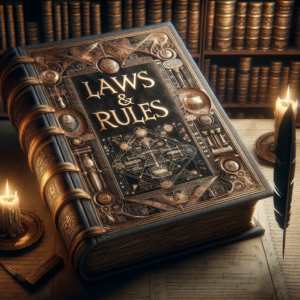Custody Battles: Unveiling the Hidden Turmoil Behind Family Disputes

Custody battles are often the most contentious and emotionally charged aspects of family law. These disputes arise when parents cannot agree on the custody arrangements for their children following a separation or divorce. The implications of these battles extend beyond legal considerations, affecting the emotional well-being of both children and parents. Understanding the complexities of custody disputes is essential for navigating this challenging landscape, as it involves a myriad of factors including emotional turmoil, legal frameworks, and the involvement of mental health professionals. This article aims to unveil the hidden turmoil behind family disputes by exploring various facets of custody battles.
Understanding Custody Battles: An Overview of Family Disputes and Their Impact
Custody battles typically arise in the context of divorce or separation, where parents must determine the living arrangements and care responsibilities for their children. These disputes can take various forms, including legal custody (the right to make decisions about a child’s upbringing) and physical custody (where the child lives). The impact of custody battles is profound, often leading to prolonged legal conflicts that can drain financial resources and strain familial relationships. The stakes are high, as the outcomes of these disputes can shape a child’s upbringing and emotional health for years to come. As such, understanding the dynamics of custody battles is crucial for parents, legal professionals, and mental health experts alike.
The Emotional Toll of Custody Disputes on Children and Parents Alike
The emotional toll of custody disputes is significant, affecting not only the parents involved but also the children caught in the middle. For parents, the stress of potential loss of custody can lead to anxiety, depression, and feelings of inadequacy. Children, on the other hand, may experience confusion, fear, and loyalty conflicts as they navigate their relationships with both parents. Research indicates that children exposed to high-conflict custody battles are at a greater risk for emotional and behavioral issues, including depression and academic difficulties. The psychological impact can be long-lasting, underscoring the importance of addressing the emotional dimensions of custody disputes alongside legal considerations.
Legal Frameworks Governing Custody Battles: Key Laws and Considerations
Custody battles are governed by a complex legal framework that varies by jurisdiction. Generally, courts prioritize the best interests of the child when making custody determinations. Key considerations often include the child’s age, health, emotional ties to each parent, and the parents’ ability to provide a stable environment. In many jurisdictions, laws also encourage shared parenting arrangements, recognizing the importance of maintaining relationships with both parents. Legal professionals must navigate statutes, case law, and local regulations while advocating for their clients, making it essential for parents to seek knowledgeable legal counsel to understand their rights and options in custody disputes.
Common Causes of Custody Disputes: Factors Leading to Family Conflicts
Custody disputes can arise from a variety of factors, often rooted in the complexities of family dynamics. Common causes include differing parenting styles, allegations of abuse or neglect, substance abuse issues, and financial instability. Additionally, changes in life circumstances, such as relocation for work or new relationships, can trigger disputes. Emotional factors, such as unresolved conflicts between parents or a lack of communication, can further exacerbate tensions. Understanding these underlying causes is crucial for addressing the root issues in custody disputes and finding effective resolutions.
Strategies for Resolving Custody Disputes: Mediation, Negotiation, and Court Processes
Resolving custody disputes can be approached through various strategies, each with its own advantages and challenges. Mediation is often encouraged as a first step, allowing parents to work collaboratively with a neutral third party to reach an agreement that serves the best interests of the child. Negotiation can also be effective, enabling parents to communicate their needs and concerns directly. However, when these methods fail, court processes may become necessary, leading to a more adversarial environment. It is essential for parents to remain focused on their children’s well-being throughout this process, regardless of the approach taken.
The Role of Mental Health Professionals in Custody Evaluations and Decisions
Mental health professionals play a critical role in custody evaluations, providing valuable insights into the psychological dynamics at play in family disputes. These professionals may conduct assessments to evaluate the emotional well-being of both parents and children, offering recommendations to the court regarding custody arrangements. Their expertise can help identify potential issues, such as parental alienation or the impact of a parent’s mental health on their ability to care for the child. By incorporating the perspectives of mental health professionals, courts can make more informed decisions that prioritize the child’s best interests and promote healthier family dynamics.
Custody battles are complex and multifaceted, often revealing the hidden turmoil that families endure during times of separation. The emotional toll on children and parents, the legal frameworks that govern these disputes, and the involvement of mental health professionals all contribute to the intricate landscape of custody disputes. By understanding the causes and potential resolutions, parents can navigate these challenging waters with greater awareness and support. Ultimately, prioritizing the well-being of children amidst the conflict is essential for fostering healthier family relationships and ensuring a stable future for all involved.













